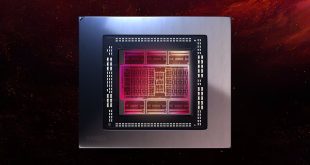Whether a graphic card wins or loses a benchmark battle is almost entirely down to the price that the manufacturer wants to charge for it.
The actual line up from AMD and nVidia, when placed in a single column based on price, is called the product stack.
KitGuru learns of a move at the top end and renders the new pricing instantly, at HD resolution.
.
While opinion on the new GTX660 card is mixed in the market (KitGuru loved it while other sites hated it), almost everyone agrees that the performance is strong. The price of the card itself is a little strange though. Roll back to the '60' cards of yesteryear and you find then around the £150-199 mark. Good examples include the 9600 and GTX260. While the GTX460 was in the same kind of zone, the GTX560 actually pushed the bar up to $299. However, nVidia CEO Jen Hsun Huang quickly realised that this was a mistake and the price of the GTX560 began to tumble almost immediately after launch.
With the first GTX660 card successfully through KitGuru Labs at £270, you can already see that the price for entry level 660 cards will land just under £250 (around $300).
Looking ahead, AMD has decided that strong action is needed to balance the two company's product stacks and here are the latest likely street prices:-
- 1GB 7850 down $40 to $190
- 2GB 7850 also drops $40 to $210
- 2GB 7870 down $50 to $250
- 3GB 7950 down $30 to $320
One of the most interesting parts of this move is that the 3GB version of the 7950 now moves to almost exactly the same price as most of the GTX660 cards.
Given that the 2GB version of the 7950 was slightly edged out in more than half of the tests run by KitGuru Labs, AMD's move seems intended to bring the 660 against the 3GB 7950 where benchmarks scores could be closer.
Overall, this amounts to something like a 10% price drop at the high end and closer to 20% as you drop down a little.
Whatever happens with the final price ‘in store', it's always good to see customers getting more for their money – and healthy competition drives that kind of value.
This move from AMD begs the question, “Will nVidia be forced to match the move?”. If so, it will create a huge amount of paperwork for both sides as their channel customers scramble to qualify for any kind of price protection.
One last point about the channel is that ONLY customers who have bought 100% from authorised distributors etc will get this kind of protection. Bad news for stores who might have chosen a ‘cheaper alternative route' only to find that they are now sitting on stock at the wrong price. Given that most resellers will only make 10% on a graphic card, this kind of price move will wipe out any profit they might have hoped to make.

KitGuru says: It's always disappointing to see a company move price just AFTER the benchmarks come through. Razor-sharp marketing would move the price just before the world's press do their testing – to spoil the opposition's launch and help achieve wins for your own product. Could it be that nVidia doesn't send early samples to AMD for testing?
Comment below or in the KitGuru forums.
 KitGuru KitGuru.net – Tech News | Hardware News | Hardware Reviews | IOS | Mobile | Gaming | Graphics Cards
KitGuru KitGuru.net – Tech News | Hardware News | Hardware Reviews | IOS | Mobile | Gaming | Graphics Cards



Now we wait for Nvidia’s reaction 🙂
<> This is an excellent card and in some games it matches 7970 , the price is low and the bf3 performance is excellent only 4 fps slower than GTX 680 in that game. AMD had to cut the price of their cards and maybe even more .